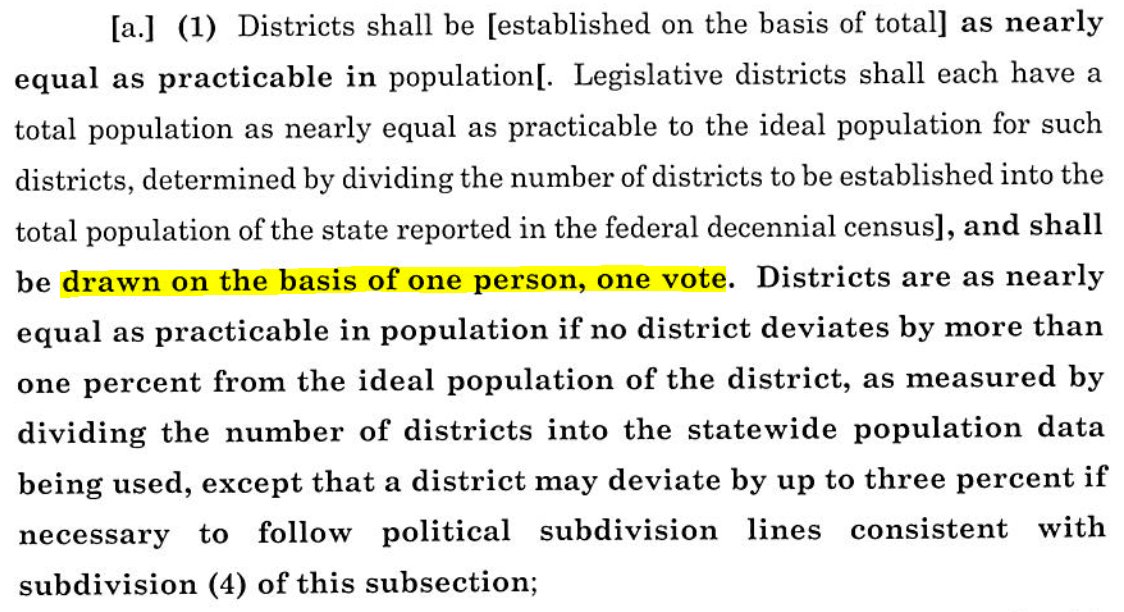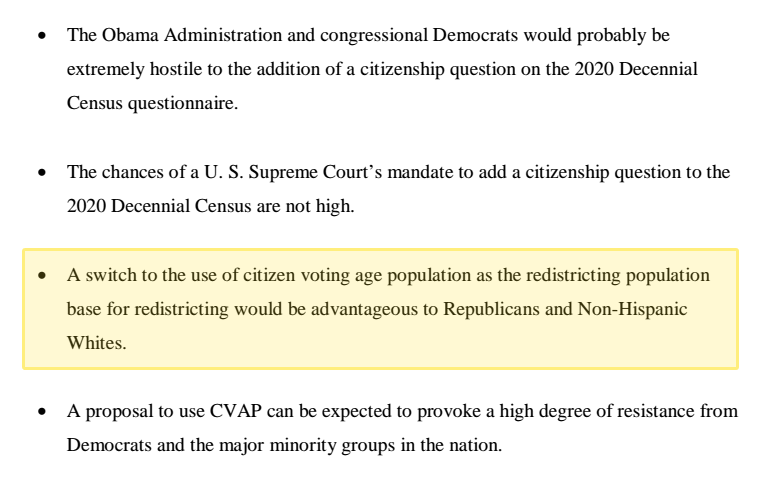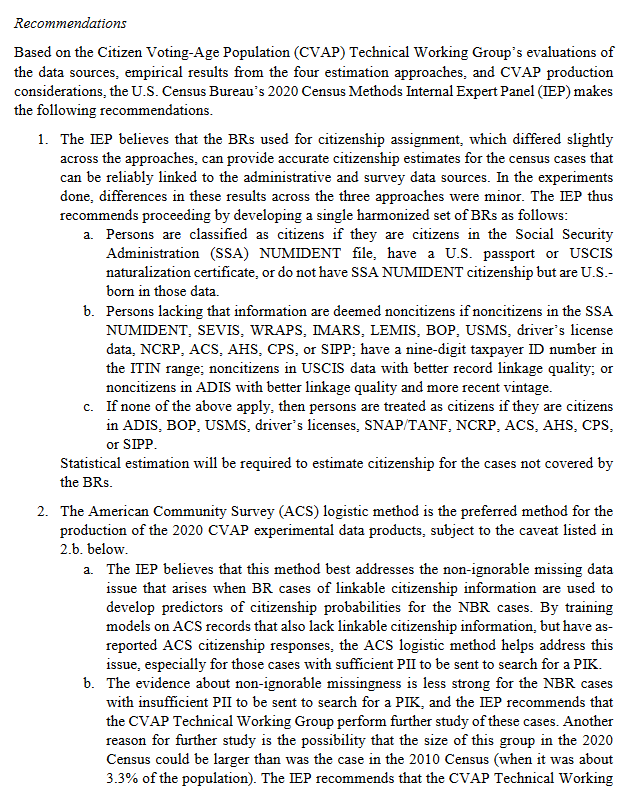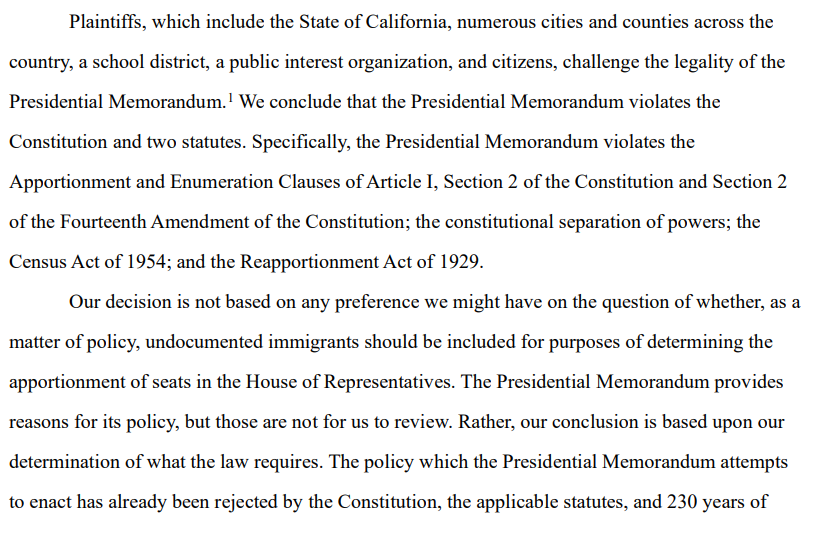
BREAKING: A third federal court has blocked Trump’s attempt to omit unauthorized immigrants from the #2020Census numbers used to reallocate House seats. #SCOTUS is already set to hear arguments Nov. 30 on Trump’s push. From the order by a court in Maryland
beta.documentcloud.org/documents/2040…
beta.documentcloud.org/documents/2040…

2. A 3-judge court in Maryland found President Trump's census apportionment memo to be unlawful, while declining to rule on if it's unconstitutional. Panel includes 4th U.S. Circuit Judge Pamela Harris, plus U.S. District Judge Ellen Hollander and Judge Paula Xinis in Maryland. 
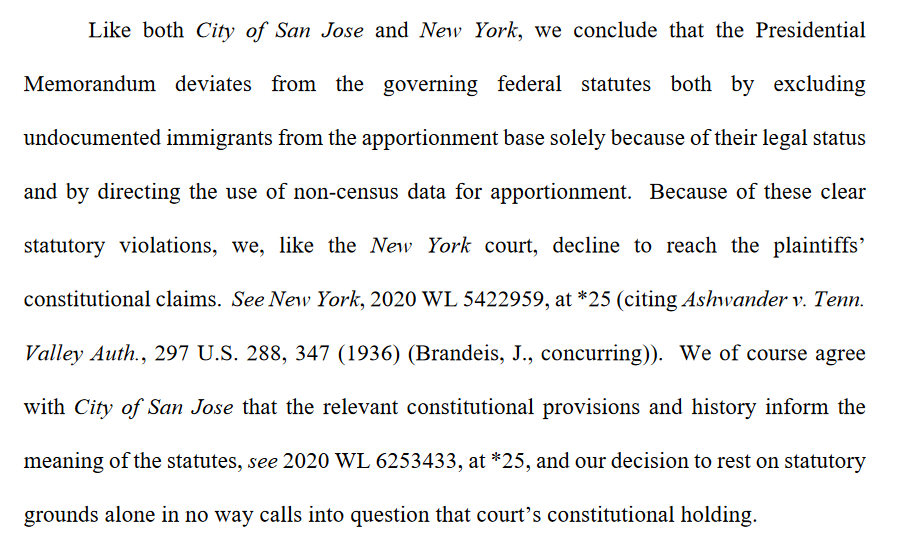
3. The 3-judge court in Maryland has blocked the federal government "from transmitting to the President any data or information on the number of undocumented immigrants in each state intended for use in apportionment." 

4. I'm still watching for a fourth federal court ruling on Trump's census apportionment memo. A 3-judge court in Washington, D.C. may issue its decision soon for the Common Cause-led lawsuit, which was the first filed against the memo.
5. UPDATE: As expected, the Trump administration is appealing this latest ruling against Trump's census apportionment memo to the Supreme Court, which is already set to hear oral arguments for a similar case on Nov. 30
assets.documentcloud.org/documents/7326…
assets.documentcloud.org/documents/7326…
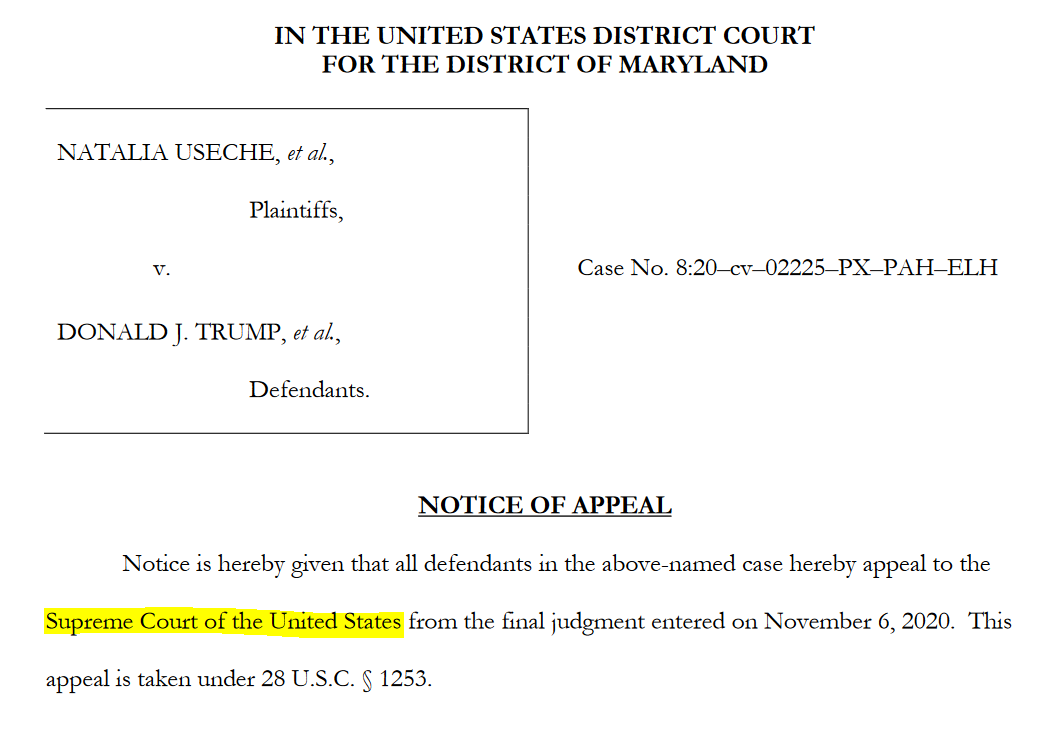
• • •
Missing some Tweet in this thread? You can try to
force a refresh


